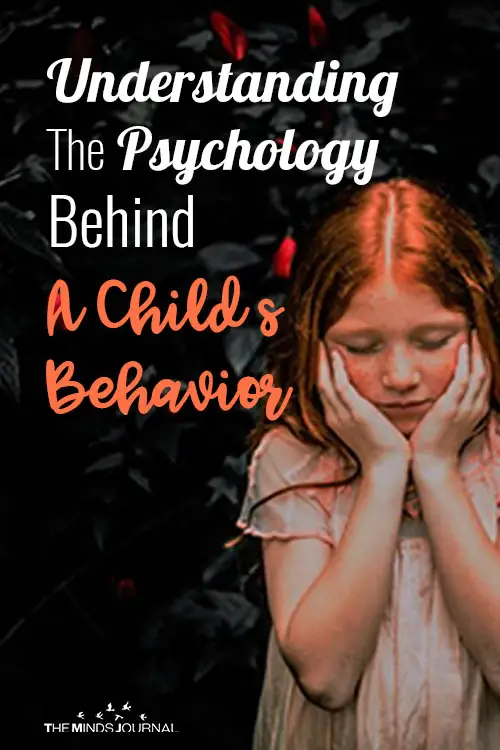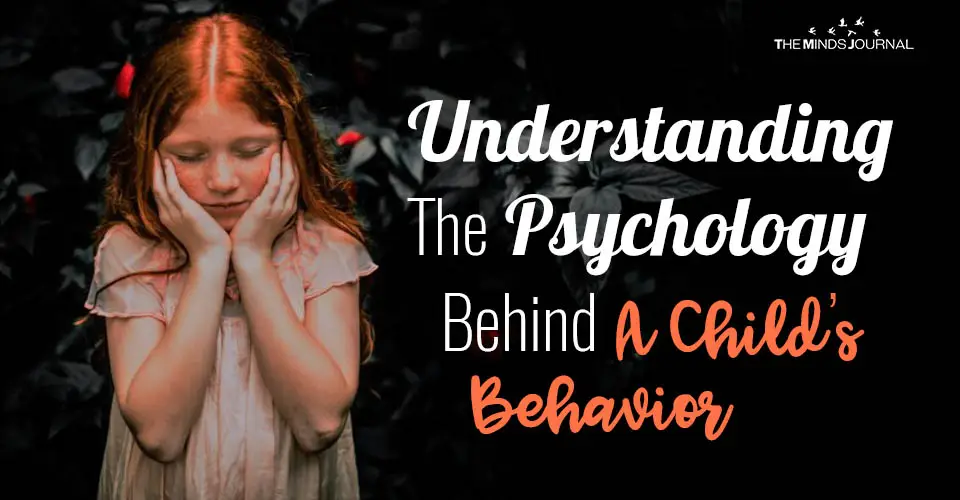Being a parent is hard, and I can say that with experience, for sure. Parenting becomes so hard because most of us parents fail to understand the basic psychological needs of our children. Understanding a child’s behavior is as important as parenting itself.
Unless you don’t understand how your child thinks and understand the reasons why he/she behaves in a particular way; I’m pretty sure you will not be able to help them properly.
According to research, most of our problems are connected to our childhood, which was not nurturing enough for us. Hence, these parenting mistakes which our parents made are eventually going to catch up with us. Consider childhood and adulthood working in complete synergy. You can not live without having echos from your childhood.
The days and experiences your child is gaining right now are going to shape his future. So it is essential that parents understand that they need to be extra careful with their kids during their early ages.
Understanding The Psychology Behind A Child’s Behavior
1. When your child is always irritated
Such situations can be very alarming for parents. Having a child who is always irritated by something is not a good sign. You can always consult a doctor about the situation but it is advised to handle the situation on your own at the start.
Try to figure out patterns in your child’s behavior. There must be something specific that is making him irritated. You can always try to talk to your child but make sure you are very careful with your words.
Kids usually throw such tantrums when something is bothering them at school or someone is posing threat to them and they can’t talk about it. Make sure your child is protected and close to you regarding such matters.
2. When your child is always rambling about his problems
Often kids do this, they keep rambling about their problems. This only has one simple solution. You need to start paying more attention to your child. It is similar to us, as we usually ramble on our partner when we need attention.
Hence, if your child is always disturbed about something, and is always complaining about something; don’t ignore him. Rather, it is best to help him out and give him/her more exposure while doing this. We never know what our child is trying to tell us until we witness it firsthand so don’t ignore his rambles.
A self-sufficient kid is a calm child who does not depend on his/her parents for even the smallest things. Read 7 Tips to Raise A Self-sufficient Child
3. When your child is never attentive in class
I should not only limit this trait to the classroom only, but this can also happen anywhere. If your child lacks attentiveness, you should start examining your ways. You might think that you are not doing your job properly, however, you should try to understand your child better.
Kids usually lose attentiveness and concentration when they have Vitamin B12 deficiencies or if they’re scared of their surroundings. This happens when parents usually keep fighting with each other and yell on the child for no reason. Authoritative style parenting has an adverse effect on children, resulting in them not being attentive and confident.
4. When your child lacks confidence
This is a repercussion of parents always fighting. We need to understand that couples who always fight each other are expected to be bad parents. They might not realize this, but children are good observers. They observe and then they apply these traits to their personalities which is disastrous.
If your child lacks confidence, you should start with the ground level and try to cheer him/her for the little things in life. Help them explore themselves rather than being rude to them for no apparent reasons. There are thousands of ways to make your child understand the difference between right and wrong. Don’t push them since they are yet to establish their rationale.
Building your child’s self-confidence can seem like a formidable task at times, but if you know what makes them tick, it becomes easier. Read 5 Practical Things You Can Do For Building Your Child’s Self-Confidence
5. What is your child’s thought process and how to understand it
Understanding your child is the most important thing to do while parenting. Yes sometimes we are unable to interpret the needs of our children but that doesn’t mean we are bad parents.
We usually are naturally attached to our child and we can feel what they want to say. But as time passes and your child grow, the bond happens to get weak. This happens due to the fact that your child is now developing a rationale and trying to understand how the world works. This shouldn’t be alarming for you.
In such cases, you should just try to understand your child’s needs and desires. Your child will always leave patterns behind for you to pick. If you’re keen enough to observe him/her, you will see how your child thinks.
You can always give him assignments to figure out why the child does what he does. There are thousands of personality tests available on the internet which can help you understand the thought process of your child. I know that will not be much but it will help you understand the way he/she processes information. You can run tests to see what he/she thinks of themselves and see how confident they are in life. This can help you and your child both in hindsight if only done with care and love.









Leave a Reply
You must be logged in to post a comment.